
Lusaka: The Heartbeat of Zambia
Lusaka, the bustling capital of Zambia, offers an intriguing mix of urban energy and cultural charm. As the nation's largest city, Lusaka serves as the perfect gateway to explore the rich heritage and natural wonders of Zambia. With its welcoming locals and vibrant atmosphere, Lusaka promises an unforgettable experience for every visitor. Stroll through the city's markets, where the air is filled with the scent of fresh produce and the sounds of lively bargaining. The Lusaka City Market and Soweto Market are must-visits for those who want to experience the local way of life. Here, you can find handmade crafts, colorful textiles, and a variety of local delicacies. For history enthusiasts, the Lusaka National Museum provides an insightful look into Zambia's past and present. You can also visit the Freedom Statue, a powerful symbol of Zambia's fight for independence. If you prefer the outdoors, the Munda Wanga Environmental Park offers a peaceful escape with its lush gardens and wildlife sanctuary. Lusaka's dining scene is as diverse as its population. From traditional Zambian dishes like nshima and chibwabwa to international cuisine, there is something to satisfy every palate. Don't miss the chance to enjoy a meal at one of Lusaka's many restaurants, where you can taste the flavors of Zambia with a modern twist.
Local tips in Lusaka
- Visit the Lusaka City Market early in the morning for the freshest produce and the best bargains.
- Use local taxis or ride-sharing apps to get around the city safely and conveniently.
- Carry some local currency (Zambian Kwacha) as not all places accept credit cards.
- Stay hydrated and wear sunscreen, as Lusaka can get quite hot, especially during the dry season.
- If you plan to visit Munda Wanga Environmental Park, allocate at least half a day to fully enjoy the gardens and wildlife.
Neighbourhoods in Lusaka
Lusaka: The Heartbeat of Zambia
Lusaka, the bustling capital of Zambia, offers an intriguing mix of urban energy and cultural charm. As the nation's largest city, Lusaka serves as the perfect gateway to explore the rich heritage and natural wonders of Zambia. With its welcoming locals and vibrant atmosphere, Lusaka promises an unforgettable experience for every visitor. Stroll through the city's markets, where the air is filled with the scent of fresh produce and the sounds of lively bargaining. The Lusaka City Market and Soweto Market are must-visits for those who want to experience the local way of life. Here, you can find handmade crafts, colorful textiles, and a variety of local delicacies. For history enthusiasts, the Lusaka National Museum provides an insightful look into Zambia's past and present. You can also visit the Freedom Statue, a powerful symbol of Zambia's fight for independence. If you prefer the outdoors, the Munda Wanga Environmental Park offers a peaceful escape with its lush gardens and wildlife sanctuary. Lusaka's dining scene is as diverse as its population. From traditional Zambian dishes like nshima and chibwabwa to international cuisine, there is something to satisfy every palate. Don't miss the chance to enjoy a meal at one of Lusaka's many restaurants, where you can taste the flavors of Zambia with a modern twist.
When is the best time to go to Lusaka?
Iconic landmarks you can’t miss
EastPark Mall
Explore EastPark Mall in Lusaka for an unforgettable shopping experience filled with local culture, dining delights, and entertainment options.
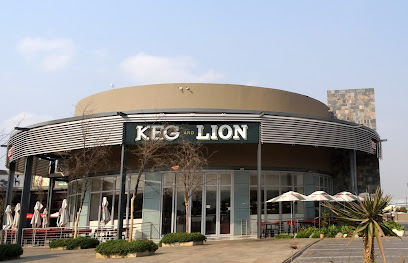
Makeni Mall
Discover the dynamic Makeni Mall in Lusaka, Zambia, where shopping, dining, and culture come together in a vibrant atmosphere.
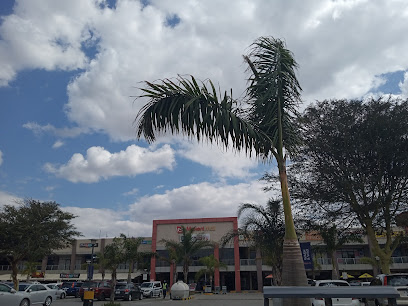
Arcades Shopping Mall
Explore the bustling Arcades Shopping Mall in Lusaka for a unique blend of shopping, dining, and entertainment experiences in Zambia's capital.
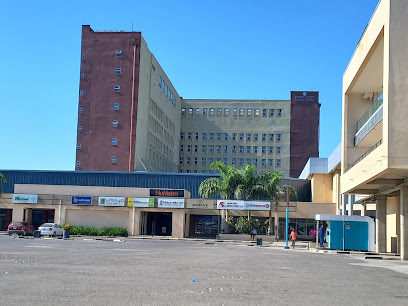
Taj Pamodzi | Lusaka
Experience unparalleled luxury and comfort at Taj Pamodzi, Lusaka, where world-class amenities meet Zambian hospitality.
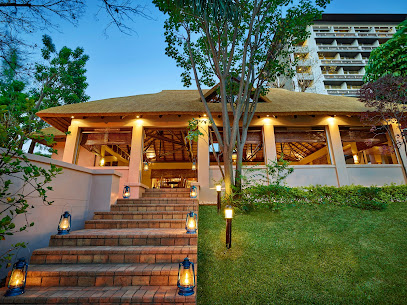
Society Business Park
Explore Society Business Park in Lusaka for a vibrant shopping experience with local and international brands, dining options, and entertainment.
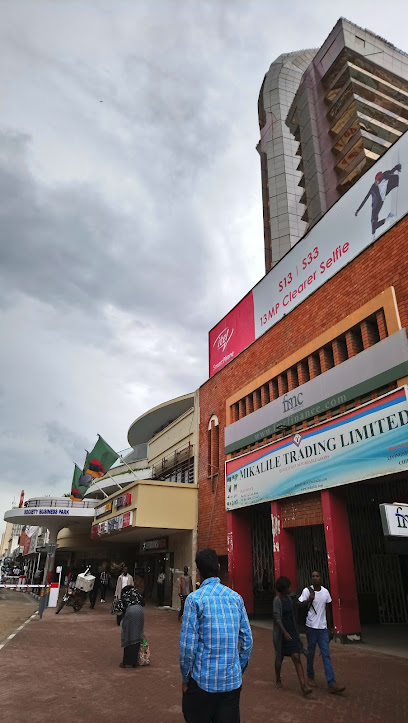
Novare Pinnacle Shopping Mall
Novare Pinnacle Shopping Mall: Lusaka's premier shopping and dining experience, blending local culture with modern retail for an unforgettable visit.
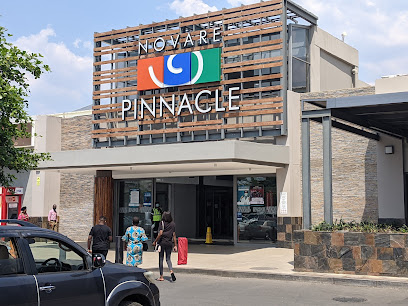
Neelkanth Sarovar Premiere
Discover luxury and convenience at Neelkanth Sarovar Premiere, Lusaka’s premier hotel for business and leisure travelers, featuring top-notch amenities and service.
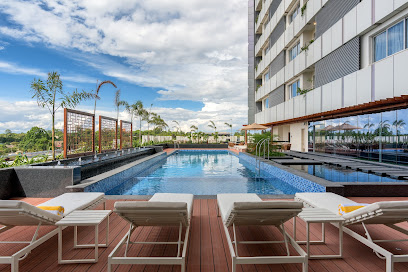
Soweto Market
Explore the vibrant Soweto Market in Lusaka; a cultural gem filled with local delicacies, crafts, and the lively spirit of Zambian life.
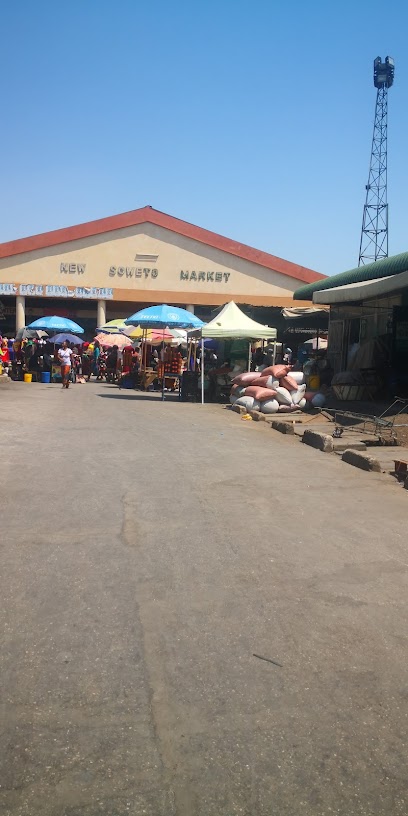
Lilayi Lodge
Discover the perfect blend of luxury, nature, and culinary excellence at Lilayi Lodge, Zambia's premier destination for relaxation and adventure.

#social Rhodespark
Discover the vibrant flavors of Zambia at #social Rhodespark, a family-friendly restaurant and pub in the heart of Lusaka offering diverse culinary delights.
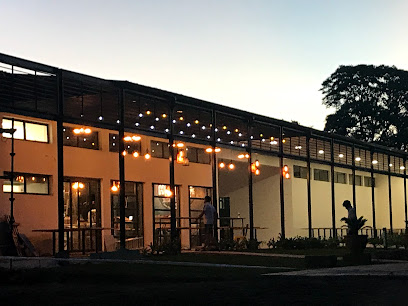
Munda Wanga Environmental Park
Discover the lush landscapes and wildlife of Munda Wanga Environmental Park in Chilanga, a sanctuary for nature lovers and conservation advocates.
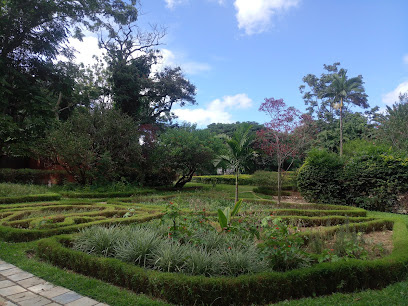
Kalimba Reptile Park
Explore the incredible diversity of reptiles and wildlife at Kalimba Reptile Park, Lusaka's premier wildlife refuge and attraction.
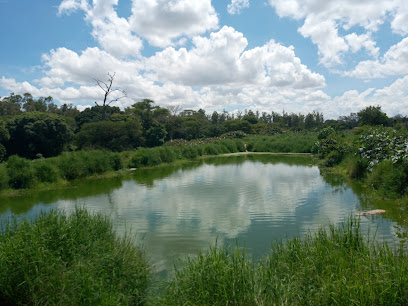
Official Kabwata Cultural Village Page
Explore Kabwata Cultural Village, a vibrant art center in Lusaka showcasing Zambian heritage through crafts, performances, and community spirit.
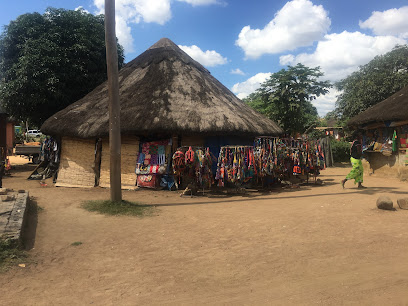
St. Ignatius Catholic Church
Discover the architectural beauty and spiritual serenity of St. Ignatius Catholic Church in Lusaka, a must-visit destination for every traveler.
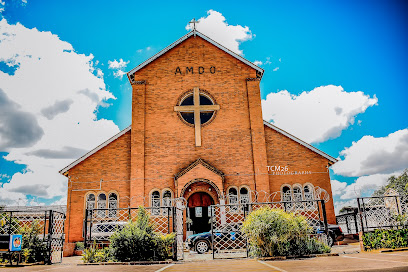
Kafue Roundabout
Discover the vibrant culture and historical significance of Kafue Roundabout, a pivotal landmark in the heart of Lusaka, Zambia.
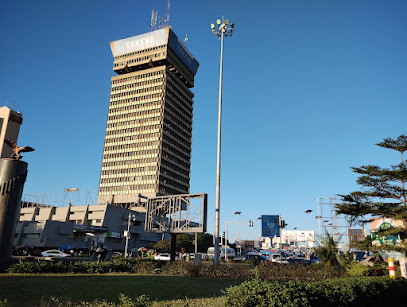
Unmissable attractions to see
Chaminuka Lodge
Discover the magic of Chaminuka Lodge, where luxury meets nature in Zambia's stunning landscapes and vibrant cultural experiences.

Munda Wanga Environmental Park
Explore Munda Wanga Environmental Park, a tranquil oasis in Chilanga, offering diverse wildlife, lush landscapes, and eco-friendly activities for all ages.
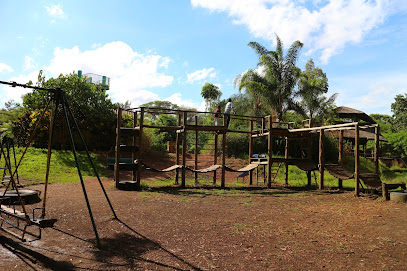
Official Kabwata Cultural Village Page
Explore the heart of Zambian culture at Kabwata Cultural Village, where art, music, and traditional crafts come alive.
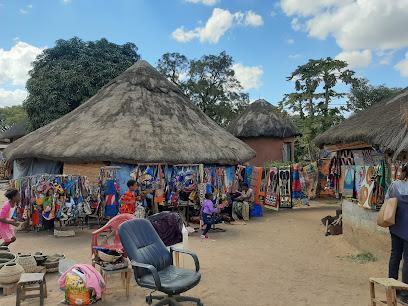
Kalimba Reptile Park
Explore the natural wonders of Kalimba Reptile Park, a top wildlife refuge in Lusaka, where education meets adventure in an unforgettable family experience.
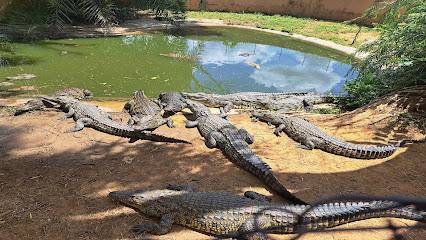
St. Ignatius Catholic Church
Discover the architectural beauty and spiritual serenity of St. Ignatius Catholic Church, a must-visit landmark in Lusaka, Zambia.
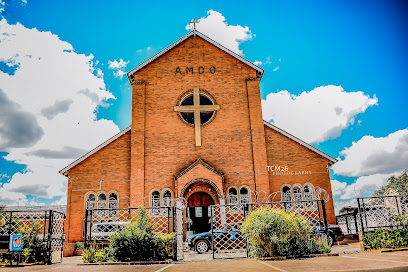
Monkey Pools
Discover the serene beauty of Monkey Pools in Lusaka, a natural oasis with crystal-clear waters perfect for relaxation and adventure.
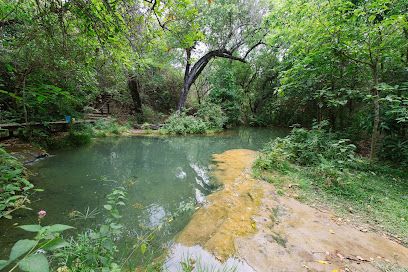
Lusaka National Museum
Explore the Lusaka National Museum, a cultural gem showcasing Zambia's rich heritage and history in the heart of Lusaka.
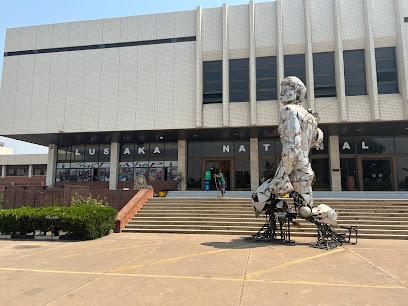
Freedom Statue
Discover the Freedom Statue in Lusaka, a remarkable tribute to Zambia's independence, surrounded by beautiful gardens and rich history.
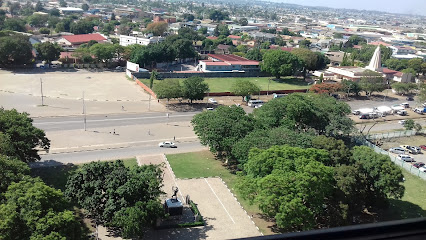
Lusaka National Park
Discover Lusaka National Park, a vibrant wildlife sanctuary near Zambia's capital, offering unforgettable adventures and scenic beauty.
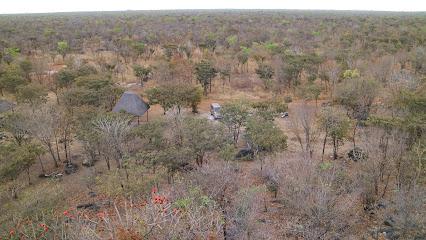
IBIZA GARDENS
Unwind in the lush greenery of Ibiza Gardens, a tranquil escape in Lusaka, Zambia, perfect for nature lovers and peaceful retreats.
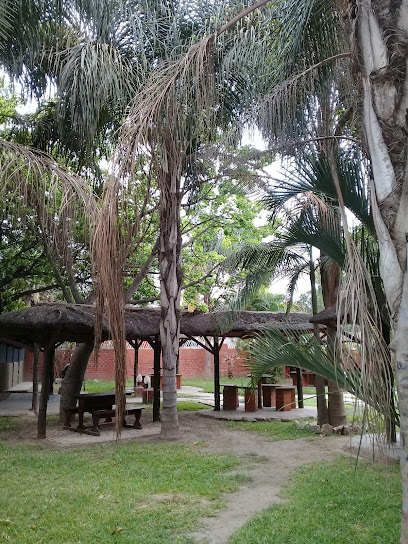
Twangale Water Park
Discover the ultimate family-friendly adventure at Twangale Water Park in Lusaka, where fun, relaxation, and excitement meet!
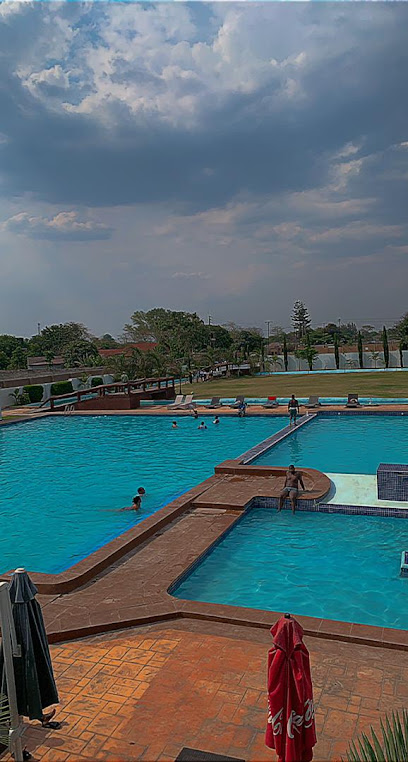
Chaminuka Offices
Discover the beauty and culture of Zambia at Chaminuka Offices, a unique tourist attraction in Lusaka with engaging experiences for every traveler.
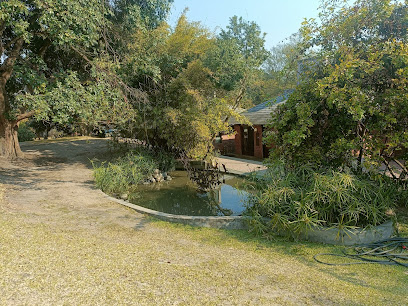
National Heritage Conservation Commission HQ
Explore Zambia's cultural treasures at the National Heritage Conservation Commission HQ, a historical landmark in Lusaka dedicated to preserving the nation's heritage.
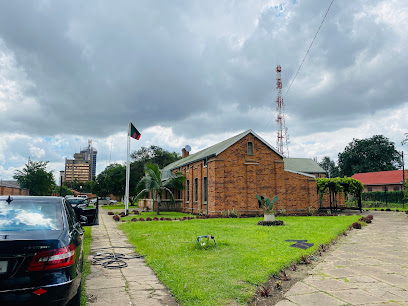
Majestic Gardens
Explore the lush beauty of Majestic Gardens in Lusaka, a peaceful retreat filled with vibrant flora and serene pathways perfect for relaxation.
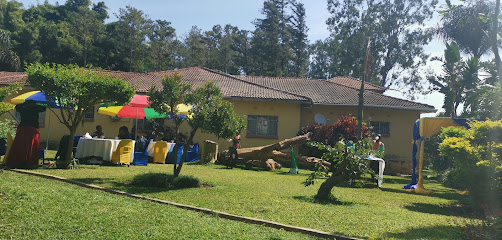
Aylmer May Park
Discover the serene beauty of Aylmer May Park in Lusaka, a perfect escape for nature lovers and families seeking tranquility amidst the urban landscape.
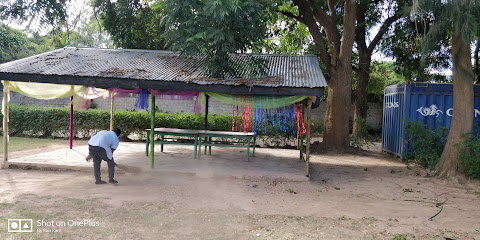
Essential places to dine
Chicago's Reloaded
Experience the best grilled cuisine at Chicago's Reloaded in Lusaka – where flavor meets vibrant atmosphere!
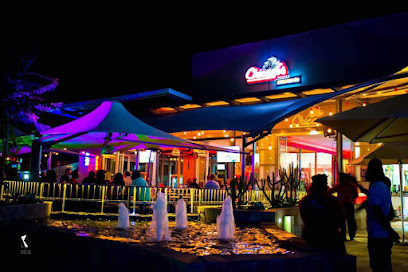
3 Trees Cafe
Discover the unique ambiance and delicious offerings at 3 Trees Cafe in Lusaka – where local flavors meet cozy vibes.
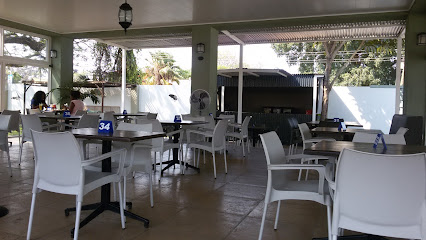
Cremosa Restaurant
Discover the flavors of Zambia at Cremosa Restaurant in Lusaka—where local meets international cuisine in an inviting atmosphere.
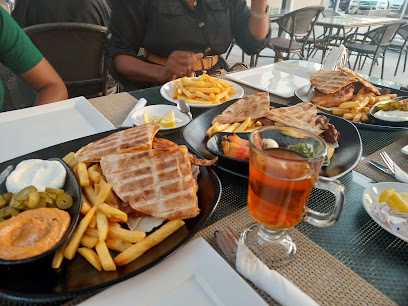
Marlin Restaurant
Experience the best steaks in Lusaka at Marlin Restaurant – where quality meets flavor in an inviting atmosphere.
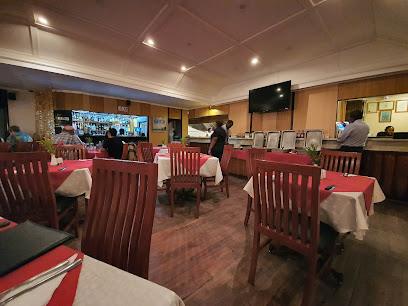
Cappello Lusaka
Experience authentic Zambian flavors at Cappello Lusaka – where culinary tradition meets modern dining in an inviting atmosphere.
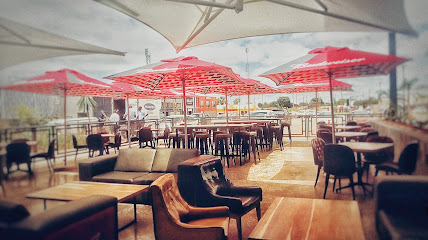
Eataly Restaurant & Pizzeria | Rhodespark
Experience authentic Italian cuisine at Eataly Restaurant & Pizzeria in Lusaka - where every meal is a celebration of flavor and tradition.
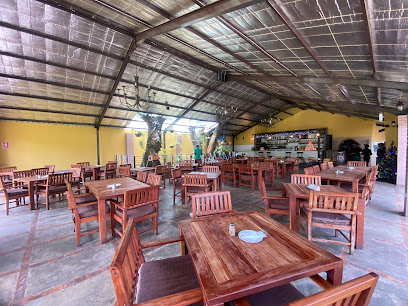
Copper Creek Spur
Experience the best of Zambian cuisine at Copper Creek Spur - where delicious steaks meet vibrant African flavors in a family-friendly setting.
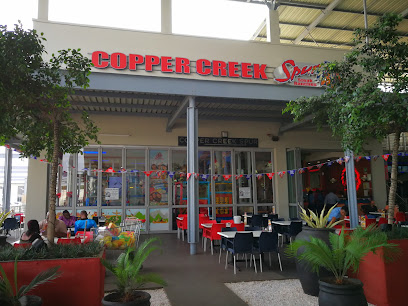
The Corner Cafe
Experience the warmth of Zambian hospitality at The Corner Cafe – where delicious meals meet cozy ambiance in the heart of Lusaka.
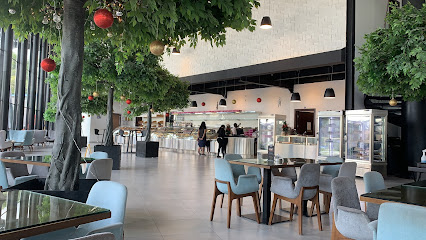
Fox & Hound
Discover vibrant dining at Fox & Hound in Lusaka – where local flavors meet global cuisine in a lively atmosphere.
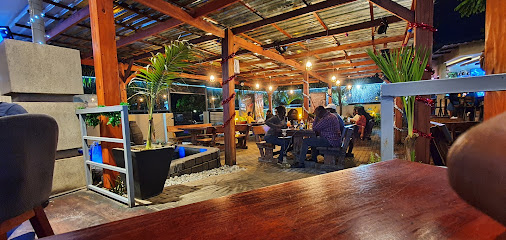
Urban Yard
Discover diverse culinary delights at Urban Yard - from gourmet pizzas to fresh seafood and savory steaks in Lusaka's vibrant dining scene.
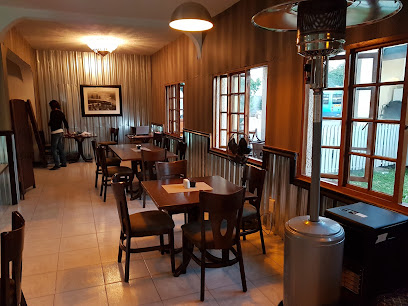
Prime Joint | EastPark Mall
Discover culinary delights at Prime Joint in EastPark Mall—where Zambian flavors meet international cuisine in a welcoming atmosphere.
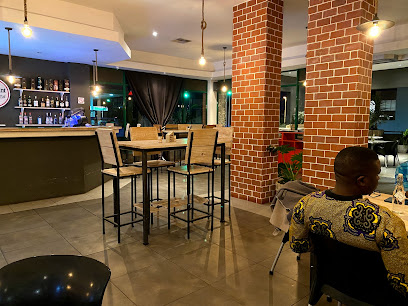
Mozambik Lusaka | Pinnacle Mall
Experience authentic Mozambican cuisine at Mozambik Lusaka in Pinnacle Mall – where every dish tells a story.
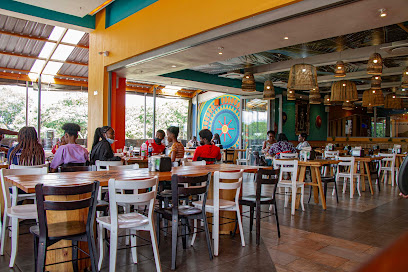
The Orange Tree Public House
Discover the vibrant flavors at The Orange Tree Public House in Lusaka - where local cuisine meets international charm in a family-friendly setting.
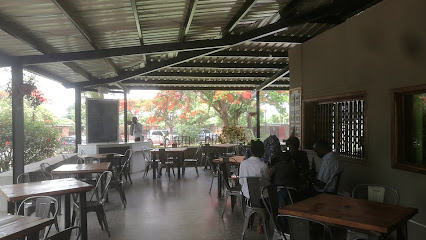
The Royal Dil
Discover the vibrant flavors of India at The Royal Dil in Lusaka – where culinary traditions come alive in every dish.
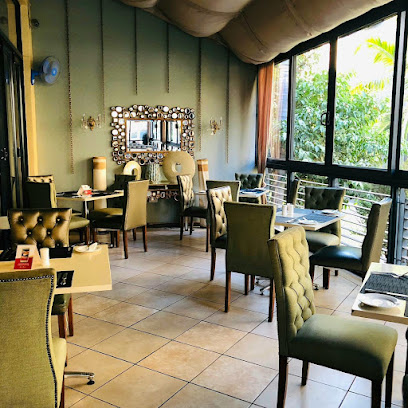
Eden Haus
Discover Eden Haus in Lusaka - where delicious cuisine meets a warm ambiance perfect for family and friends.
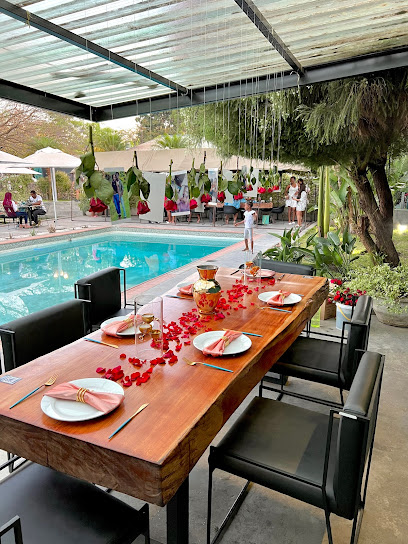
Markets, malls and hidden boutiques
EastPark Mall
Explore Lusaka's EastPark Mall for a unique shopping and dining experience, featuring a blend of local and international brands in a lively atmosphere.
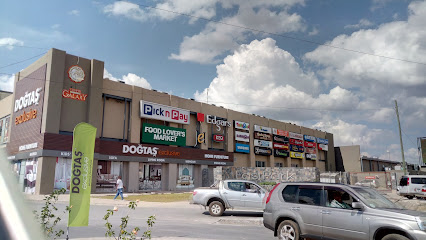
Levy Junction Shopping Mall
Explore Levy Junction Shopping Mall in Lusaka for an unforgettable shopping and dining experience amidst a vibrant atmosphere.
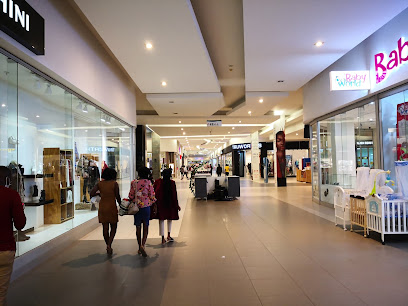
Manda Hill Shopping Mall
Discover an exciting blend of shopping, dining, and entertainment at Manda Hill Shopping Mall in Lusaka, a must-visit destination for every traveler.
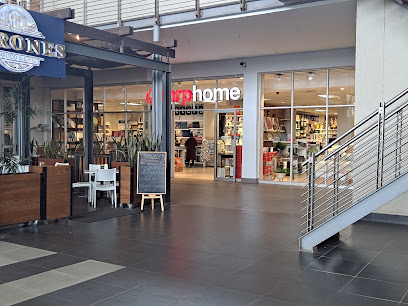
Arcades Shopping Mall
Discover shopping and dining at Arcades Shopping Mall in Lusaka - a vibrant destination for every traveler seeking local culture and modern convenience.
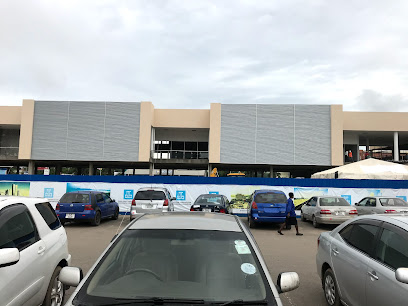
Society Business Park
Discover Society Business Park: Lusaka's Shopping Haven with Diverse Stores, Dining, and Entertainment for Every Visitor.
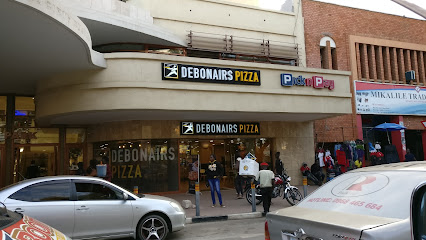
Lewanika Mall
Experience vibrant shopping and local culture at Lewanika Mall in Lusaka, a hub for fashion, dining, and entertainment.
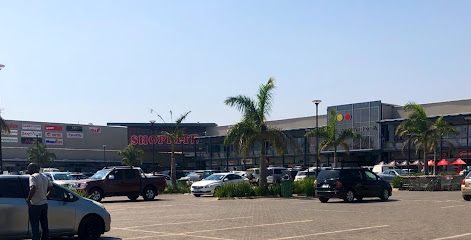
Game Lusaka | Manda Hill Mall
Discover a shopping haven at Game Lusaka in Manda Hill Mall, featuring electronics, home goods, and more in a vibrant atmosphere.
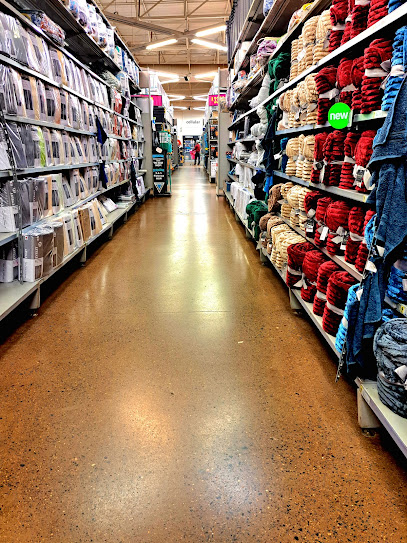
Iringa Shopping mall
Discover diverse shopping options at Iringa Shopping Mall in Lusaka, a vibrant hub for clothing, accessories, and local crafts.
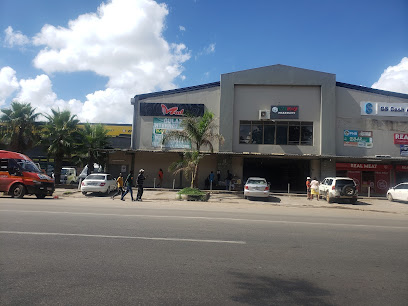
Westgate Mall
Experience shopping, dining, and entertainment at Westgate Mall, Lusaka's vibrant hub for locals and tourists alike.
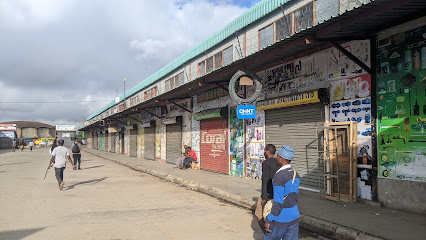
ZAMBEZI SHOPPING CENTRE
Explore the Zambezi Shopping Centre in Lusaka, a vibrant retail destination offering local flavors, diverse shopping, and delightful dining experiences.
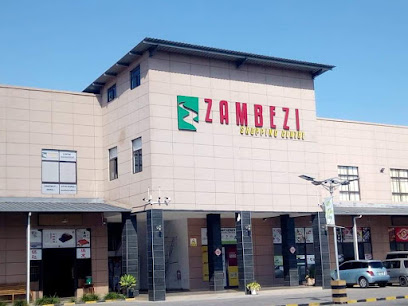
The Collective - Handcrafted Designs
Explore The Collective in Lusaka for unique handcrafted souvenirs and enjoy a delightful coffee experience in a vibrant artistic setting.
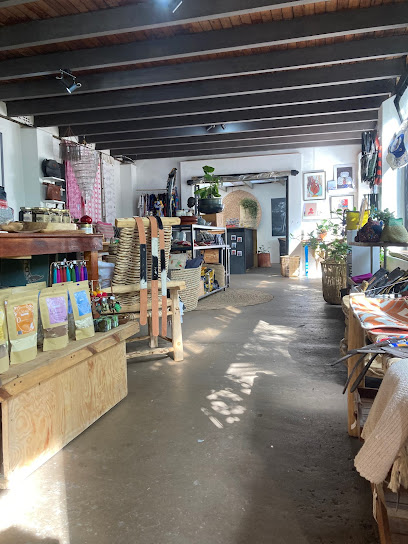
Mud Boutique cairo road
Discover unique Zambian craftsmanship at Mud Boutique in Lusaka, where tradition meets modern fashion in a charming shopping experience.
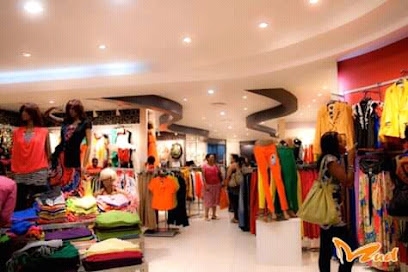
Zara Outlet Zambia
Explore the latest trends in fashion and enjoy unique styles at affordable prices at Zara Outlet Zambia in Lusaka.
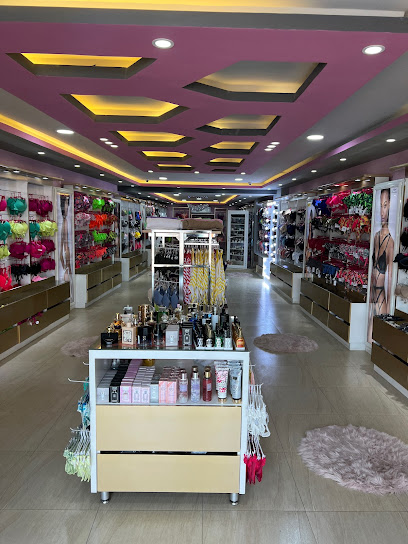
Flower Boutique
Discover the vibrant charm of Flower Boutique in Lusaka, where exquisite floral arrangements meet unique gifts, perfect for any occasion.
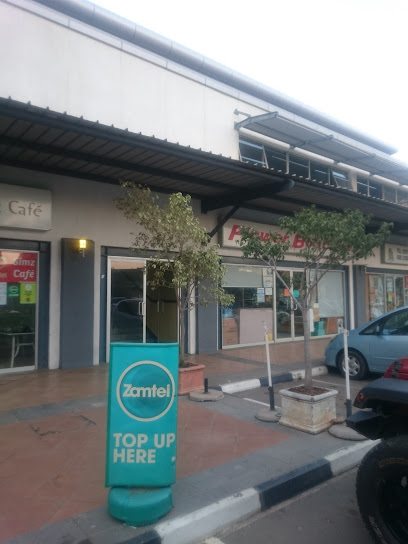
Mud Boutique
Discover unique Zambian fashion at Mud Boutique, a trendy clothing store in Lusaka that showcases local culture and contemporary styles.
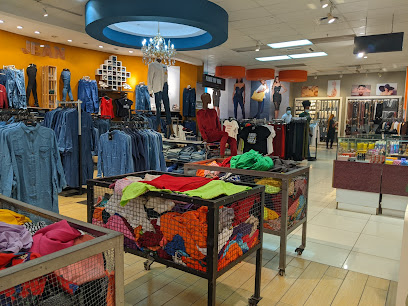
Essential bars & hidden hideouts
Grandaddy’s Shoka Nyama
Experience the authentic taste of Zambia at Grandaddy's Shoka Nyama, where delicious grilled dishes meet vibrant atmosphere and warm hospitality.
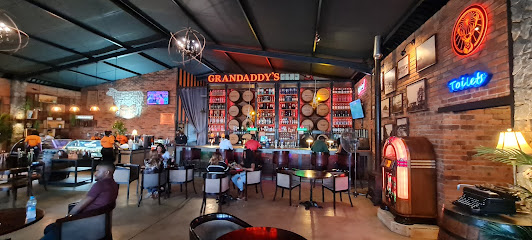
Chicago's Reloaded
Experience the best of Lusaka's dining scene at Chicago's Reloaded, a lively grill serving delicious meals and drinks in a vibrant atmosphere.
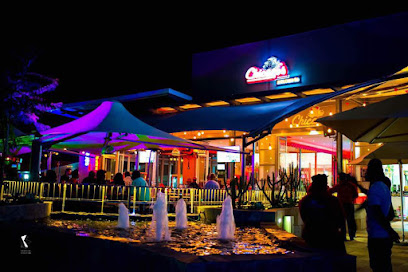
The Orange Tree Public House
Discover the vibrant flavors of Lusaka at The Orange Tree Public House, where gastropub cuisine meets a lively atmosphere.
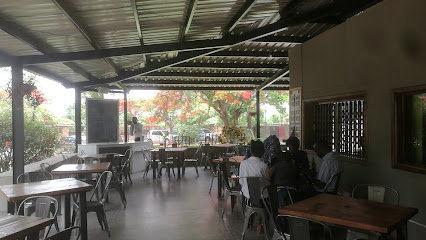
Mint Lounge
Explore the vibrant flavors and warm ambiance of Mint Lounge, Lusaka's premier restaurant for authentic Zambian and international cuisine.
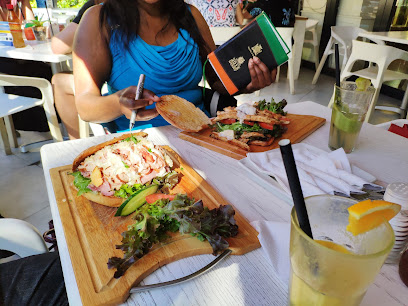
Rhapsody's Café & Wine Bar
Discover Rhapsody's Café & Wine Bar in Lusaka, where local flavors meet international cuisine in a vibrant and inviting atmosphere.
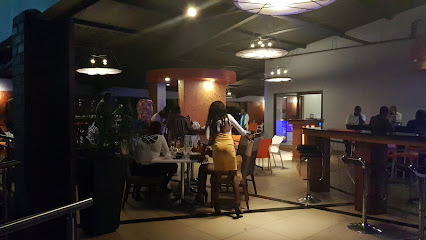
The Gathering Zambia
Discover the vibrant culinary scene of Lusaka at The Gathering Zambia, where local flavors meet creative cocktails in a chic atmosphere.
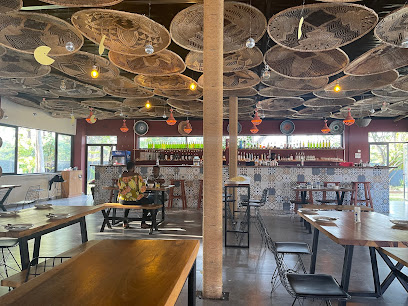
The Old Crow Pub
Discover the rustic charm and vibrant atmosphere of The Old Crow Pub, a local favorite in Lusaka offering a taste of Zambian culture.
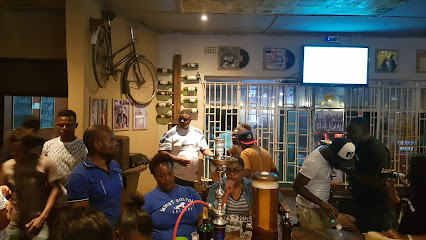
Chukams Pub And Grill
Discover the lively spirit of Lusaka at Chukams Pub And Grill, where delicious food and vibrant nightlife come together in an unforgettable experience.
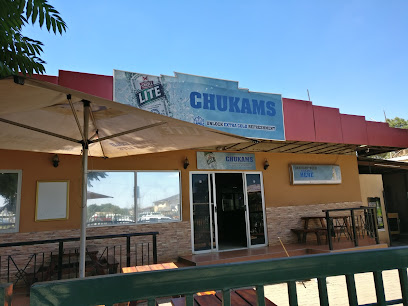
The Hangover Pub n Grill
Experience Lusaka's vibrant nightlife at The Hangover Pub n Grill, a lively bar offering delicious food, refreshing drinks, and local entertainment.
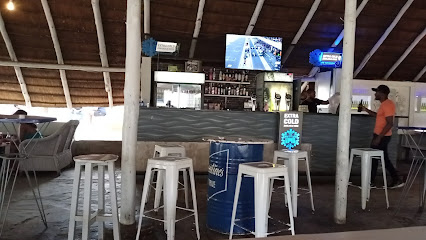
The Aviary Lounge
Discover a culinary oasis at The Aviary Lounge in Lusaka, where local flavors meet international cuisine in a warm and inviting atmosphere.
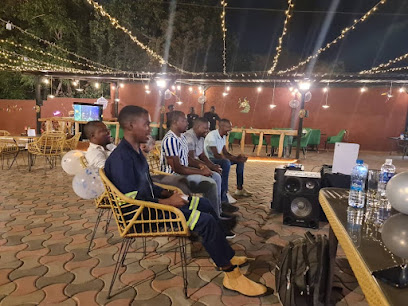
Champs VIP lounge
Experience luxury and vibrant nightlife at Champs VIP Lounge in Lusaka, Zambia - a top destination for cocktails and socializing.
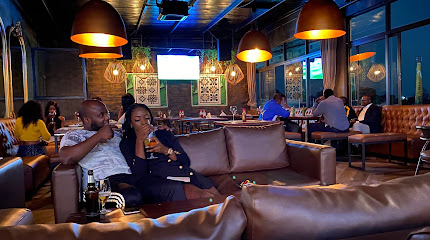
Wooden Cabin Pub & Grill
Savor the best barbecue in Lusaka at Wooden Cabin Pub & Grill, where rustic charm meets delicious flavors for an unforgettable dining experience.
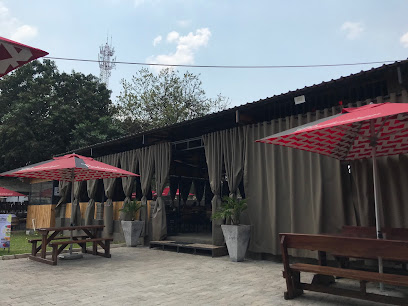
Zest Bar and Restaurant, Lusaka
Discover the perfect blend of flavors at Zest Bar and Restaurant in Lusaka, offering handcrafted pizzas, juicy steaks, and refreshing cocktails in a vibrant setting.
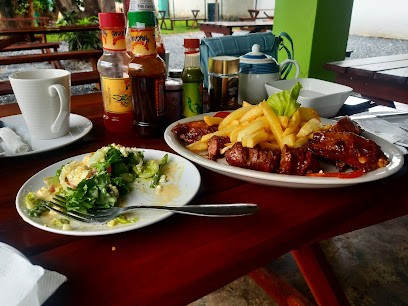
Beluga Pub
Experience the vibrant nightlife of Lusaka at Beluga Pub, where great drinks and a welcoming atmosphere come together.
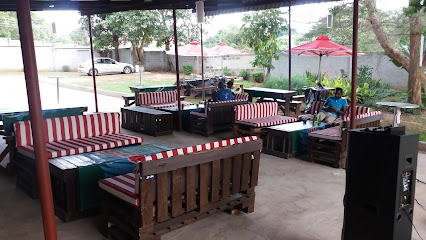
Local Phrases
-
- HelloShani
[shah-nee] - GoodbyeSalamat
[sah-lah-maht] - YesEe
[ee] - NoAwe
[ah-way] - Please/You're welcomeMwaiseni
[mwhy-say-nee] - Thank youZikomo
[zee-koh-moh] - Excuse me/SorryPepani
[peh-pah-nee] - How are you?Muli bwanji?
[moo-lee bwaan-jee] - Fine. And you?Nili bwino. Ine?
[nee-lee bwee-no. ee-nay?] - Do you speak English?Mukutanthauza chizungu?
[moo-koo-tahn-thow-zah chee-zoon-goo?] - I don't understandSindikudziwa
[seen-dee-koo-dzee-wah]
- HelloShani
-
- I'd like to see the menu, pleaseNdimakonda kudziona menu, chonde
[ndee-mah-kohn-dah koo-dzee-oh-nah meh-noo, chohn-day] - I don't eat meatSindikudya nyama
[seen-dee-koo-dyah nyah-mah] - Cheers!Mwabuka!
[mwa-boo-kah!] - I would like to pay, pleaseNdimakonda kuyimba, chonde
[ndee-mah-kohn-dah koo-yim-bah, chohn-day]
- I'd like to see the menu, pleaseNdimakonda kudziona menu, chonde
-
- Help!Chilanda!
[chee-lahn-dah!] - Go away!Pita!
[pee-tah!] - Call the Police!Pemphelani maphunziro!
[pehm-phay-lah-nee mah-phoon-zee-ro!] - Call a doctor!Pemphelani dokotala!
[pehm-phay-lah-nee doh-koh-tah-lah!] - I'm lostNdimapita
[ndee-mah-pee-tah] - I'm illNdimachitika
[ndee-mah-chee-tee-kah]
- Help!Chilanda!
-
- I'd like to buy...Ndimakonda kudziwa...
[ndee-mah-kohn-dah koo-dzee-wah...] - I'm just lookingNdimawona
[ndee-mah-woh-nah] - How much is it?Ndalipilira bwanji?
[ndah-lee-pee-lee-rah bwaan-jee?] - That's too expensiveChabwino chabvuta
[chah-bwee-no chah-boo-tah] - Can you lower the price?Mukuyenera kusintha malipilo?
[moo-koo-yeh-neh-rah koo-seen-thah mah-lee-pee-loh?]
- I'd like to buy...Ndimakonda kudziwa...
-
- What time is it?Saatani yatani?
[sah-ah-tah-nee yah-tah-nee?] - It's one o'clockYalero ndi makumi awiri
[yah-leh-roh ndee mah-koo-mee ah-wee-ree] - Half past (10)Ntchito ya chiwiri
[n-chit-toh yah chee-wee-ree] - MorningUsiku
[oo-see-koo] - AfternoonMawa
[mah-wah] - EveningMphindi
[mph-een-dee] - YesterdayLero
[leh-roh] - TodayLero
[leh-roh] - TomorrowMawa
[mah-wah] - 1Makumi awiri
[mah-koo-mee ah-wee-ree] - 2Makumi atatu
[mah-koo-mee ah-tah-too] - 3Makumi anai
[mah-koo-mee ah-nye] - 4Makumi anayi
[mah-koo-mee ah-nye-yee] - 5Makumi asanu
[mah-koo-mee ah-sah-noo] - 6Makumi asawiri
[mah-koo-mee ah-sah-wee-ree] - 7Makumi asanayi
[mah-koo-mee ah-sah-nye-yee] - 8Makumi asanayi
[mah-koo-mee ah-sah-nye-yee] - 9Makumi asanu
[mah-koo-mee ah-sah-noo] - 10Makumi akumi
[mah-koo-mee ah-koo-mee]
- What time is it?Saatani yatani?
-
- Where's a/the...?Kutaliko...?
[koo-tah-lee-koh...?] - What's the address?Adilesi yayendani?
[ah-dee-leh-see yah-yehn-dah-nee?] - Can you show me (on the map)?Mukuyenera kundidikira (pa map)
[moo-koo-yeh-neh-rah koon-dee-dee-kee-rah (pah map)] - When's the next (bus)?Bus iliyense itavuta popanga?
[boos ee-lee-yehn-see ee-tah-voo-tah poh-pahn-gah?] - A ticket (to ....)Tikiti (ku ....)
[tee-kee-tee (koo ....)]
- Where's a/the...?Kutaliko...?
History of Lusaka
-
Lusaka, the capital city of Zambia, traces its origins back to a small village founded by the Soli people. This early settlement was strategically located on the central plateau, which provided fertile soil for agriculture and a temperate climate. The village was named after its headman, Lusakasa.
-
In the late 19th century, Zambia, then known as Northern Rhodesia, came under British colonial rule. Lusaka began to grow as a central trading post due to its location along the railway line from Livingstone to the copper mines in the north. By 1935, it was chosen to replace Livingstone as the capital of Northern Rhodesia due to its central location and potential for growth.
-
On October 24, 1964, Zambia gained independence from British rule, and Lusaka was retained as the capital of the new nation. The city's status as the capital attracted significant investment, leading to rapid urbanization and development. It became the political and administrative heart of Zambia.
-
Throughout the 1970s and 1980s, Lusaka experienced economic challenges, including a decline in copper prices, which impacted the national economy. Despite these challenges, the city continued to grow, with investments in infrastructure, education, and healthcare. The University of Zambia, established in 1965, became a center for higher education and research.
-
Lusaka is a cultural melting pot, home to over 70 ethnic groups, each contributing to the city's rich cultural tapestry. Traditional music, dance, and art thrive alongside modern influences. The Lusaka National Museum showcases the country's cultural heritage, including artifacts from various ethnic groups and historical periods.
-
Today, Lusaka is a bustling metropolis with a population of over two million people. It is the commercial and financial hub of Zambia, hosting international businesses, embassies, and non-governmental organizations. The cityscape is a blend of modern skyscrapers, shopping malls, and traditional markets, reflecting its dynamic growth and diverse culture.
Lusaka Essentials
-
Lusaka, the capital city of Zambia, is accessible via Kenneth Kaunda International Airport (LUN), which is located approximately 26 kilometers from the city center. Direct flights are available from major cities such as Johannesburg, Dubai, and Addis Ababa. From the airport, you can reach the city center by taxi or shuttle services offered by some hotels. Alternatively, long-distance buses connect Lusaka to neighboring countries, including Zimbabwe, Malawi, and Tanzania.
-
In Lusaka, public transportation includes minibuses, which are the most common and affordable means of getting around. However, they can be crowded and less reliable in terms of schedule. Taxis are available and can be hailed on the street or booked via phone. Ride-hailing services like Ulendo and Yango are also operational. Renting a car is another option, with several car rental services available. Be aware that traffic can be heavy, especially during peak hours.
-
The official currency in Zambia is the Zambian Kwacha (ZMW). Credit and debit cards are widely accepted in major hotels, restaurants, and shopping centers, but it is advisable to carry some cash for smaller establishments and markets. ATMs are available throughout Lusaka, but it is wise to inform your bank of your travel plans to avoid any issues with card usage.
-
Lusaka is generally safe for tourists, but it is important to exercise caution. Avoid walking alone at night, especially in poorly lit areas. High-crime areas include compounds like Kanyama and Chibolya, where petty theft and muggings are more common. Always keep your valuables secure and be cautious when using ATMs. It is advisable to use reputable transportation services and avoid displaying wealth.
-
In case of an emergency, dial 991 for the police, 993 for an ambulance, and 992 for the fire department. Major hospitals in Lusaka include the University Teaching Hospital and Levy Mwanawasa General Hospital, both of which offer emergency services. It is recommended to have travel insurance that covers medical emergencies. Pharmacies are available throughout the city for minor health issues.
-
Fashion: Do dress modestly, especially when visiting religious sites. Avoid wearing revealing clothing. Religion: Do respect local customs and traditions. Always remove your shoes when entering someone's home or a place of worship. Public Transport: Do be respectful and give up your seat to elderly passengers. Avoid eating or drinking on public transport. Greetings: Do greet people with a handshake. A friendly 'Muli bwanji?' (How are you?) is appreciated. Eating & Drinking: Do try local dishes like nshima and ifisashi. Accept food offerings graciously. Don't refuse hospitality, as it is considered impolite.
-
To experience Lusaka like a local, visit the bustling Soweto Market where you can buy fresh produce and local crafts. Engage with locals, as they are often friendly and willing to share stories about the city's culture and history. Don't miss the Lilayi Elephant Nursery, where you can see baby elephants being cared for. For a unique experience, attend a local football match at the National Heroes Stadium.
Trending Landmark in Lusaka
-
EastPark Mall
-
Makeni Mall
-
Arcades Shopping Mall
-
Taj Pamodzi | Lusaka
-
Society Business Park
-
Novare Pinnacle Shopping Mall
-
Neelkanth Sarovar Premiere
-
Soweto Market
-
Lilayi Lodge
-
#social Rhodespark
-
Munda Wanga Environmental Park
-
Kalimba Reptile Park
-
Official Kabwata Cultural Village Page
-
St. Ignatius Catholic Church
-
Kafue Roundabout
Nearby Cities to Lusaka
-
Things To Do in Kabwe
-
Things To Do in Kariba
-
Things To Do in Ndola
-
Things To Do in Kitwe
-
Things To Do in Chinhoyi
-
Things To Do in Livingstone
-
Things To Do in Hwange
-
Things To Do in Victoria Falls
-
Things To Do in Harare
-
Things To Do in Solwezi
-
Things To Do in Kasane
-
Things To Do in Gweru
-
Things To Do in Katima Mulilo
-
Things To Do in Chipata
-
Things To Do in Nyanga
















